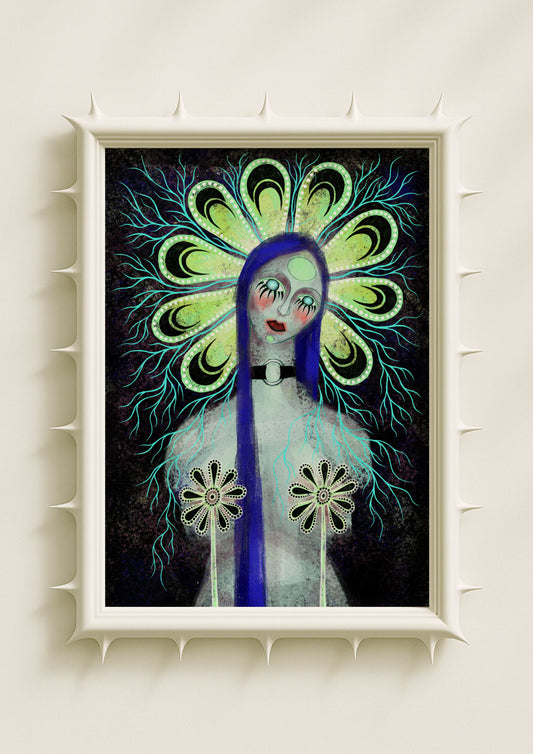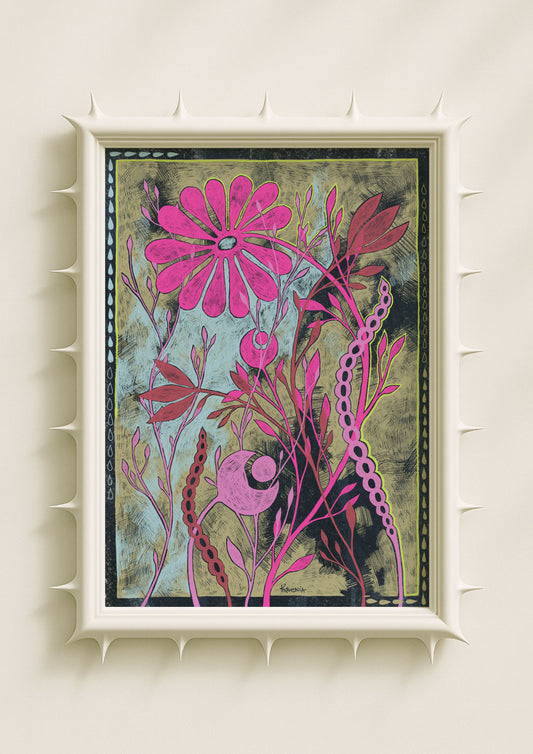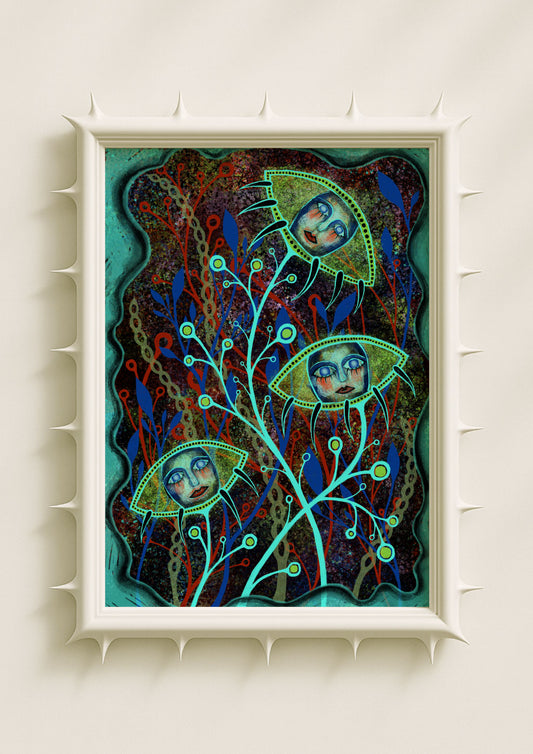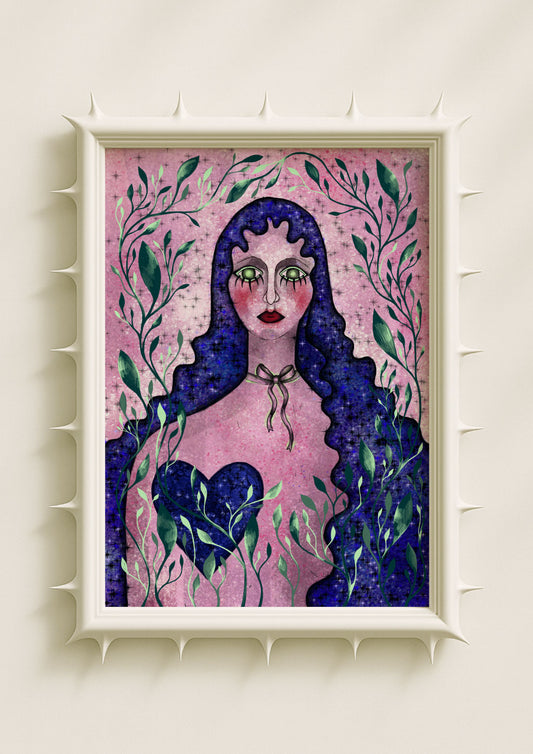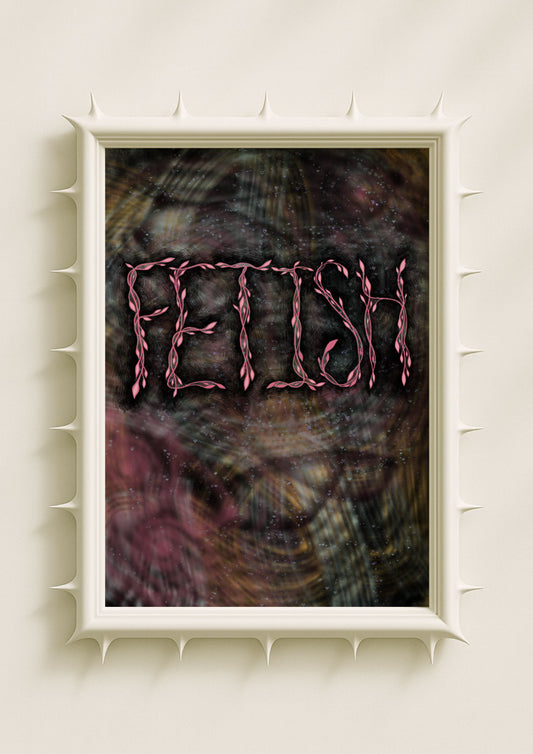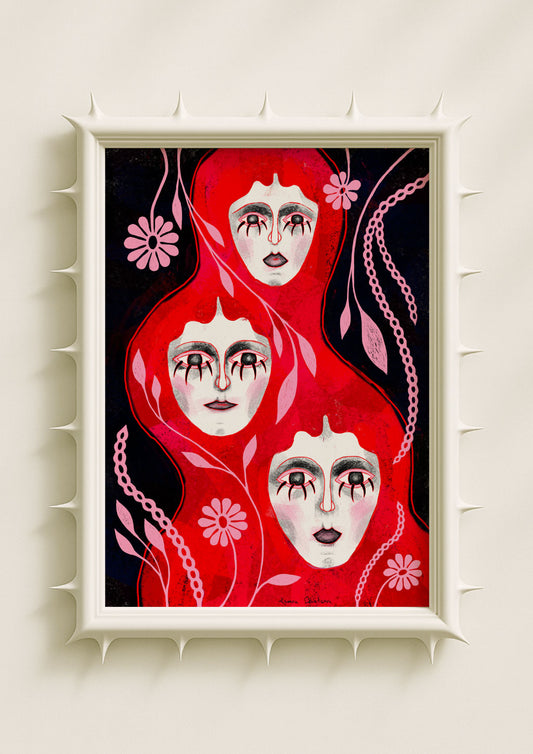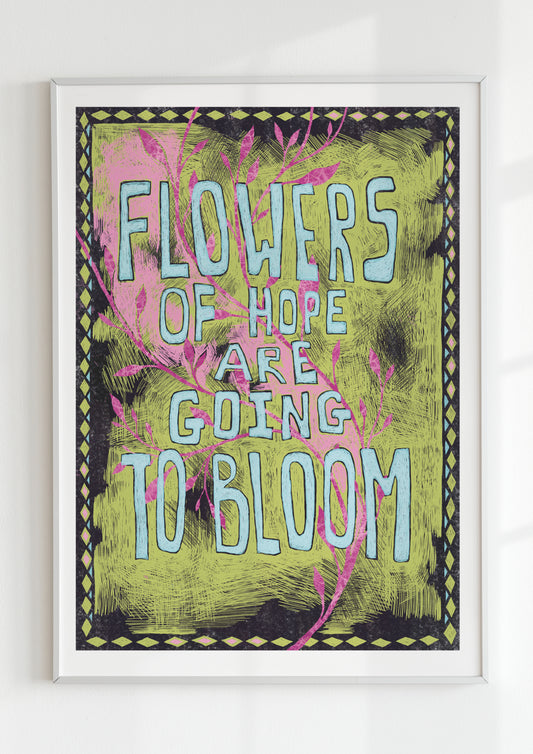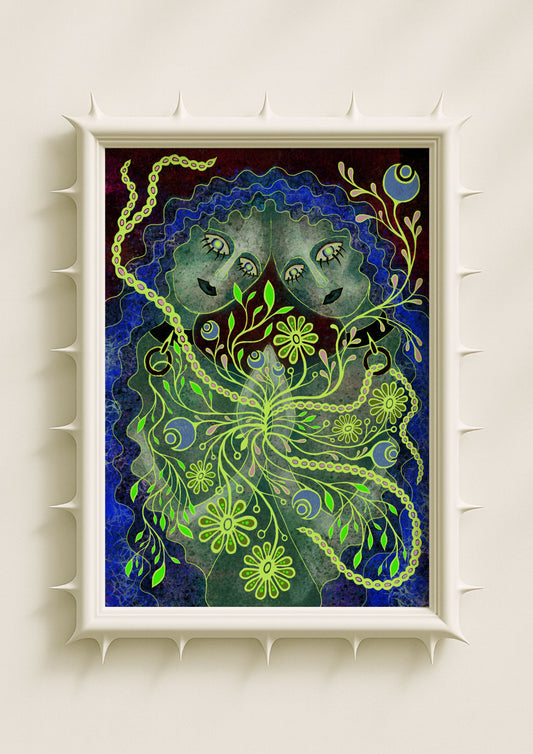Why Flowers Carry Spiritual Meaning Across Cultures
Throughout history, flowers have been far more than ornamental forms. In myth, ritual, and sacred art, they serve as symbols of transformation, divine presence, and emotional truth. When I create modern floral prints, I borrow from this long lineage. My botanicals are not decorative shapes — they carry echoes of rituals, ancient stories, and spiritual archetypes. The floral becomes a bridge between the human world and something older, deeper, and more mysterious.

Classical Myths: When Gods Spoke Through Petals
In Greek and Roman mythology, flowers were often born from dramatic acts of metamorphosis. Hyacinthus transformed through grief, Daphne through escape, Narcissus through self-obsession. These stories turned petals into metaphors, embedding emotional narratives inside natural forms. When I paint flowers with human-like sensitivity or glowing inner light, I’m reflecting this mythic logic: a flower is not just a plant but a vessel for a story about longing, fate, or desire.
Pagan Rituals: Botany as Protection and Power
Pre-Christian traditions used flowers and plants as protective symbols, healing tools, and carriers of spiritual intention. Slavic, Baltic, Celtic, and other Indo-European cultures saw botanicals as living intermediaries between the human body and the invisible world. Garlands, wreaths, and floral amulets were not decoration — they were protection, fertility blessings, or guides for transitions. Many of my floral motifs echo these ritual functions. The symmetrical blossoms, dotted stems, and halo-like petals reflect patterns found in ancient ceremonial art.

Symbolic Flora as Emotional Language
Flowers in my artwork often appear fused with faces, floating as independent symbols, or repeating in rhythmic patterns. These forms aren’t botanical studies; they function as emotional metaphors. A repeated petal can suggest vulnerability or tenderness. A stem with dotted rings can evoke inner resonance. A glowing bloom can represent rebirth or psychic openness. By linking these forms to ancient symbolic systems, the artwork reconnects the viewer with the emotional and spiritual meanings embedded in sacred botany.
Ritual Ornamentation as Contemporary Expression
Ritual art across cultures has always used floral ornamentation to frame the sacred. Decorative borders, symmetrical motifs, and cyclical structures were not embellishments — they represented cosmic order. My modern floral compositions often follow these same principles. Even the most surreal blossoms inherit a ritual structure: repeating petals, central radiance, mirrored forms, and ornamental layering. These choices make the floral print feel less like décor and more like a contemporary talisman.

When Flowers Become Myth in Modern Art
In my work, flowers are emotional anchors and symbolic messengers. They carry memory, spirituality, femininity, and transformation. They glow, radiate, orbit, and merge with human expressions. This fusion creates a new kind of mythic botanical — one that belongs as much to contemporary surrealism as to ancient storytelling. Sacred botany becomes a living language, continually renewed each time a viewer finds meaning in a bloom.
Flowers in modern prints can still do what they did in myths and rituals:
offer protection, express emotion, and reveal the unseen.
